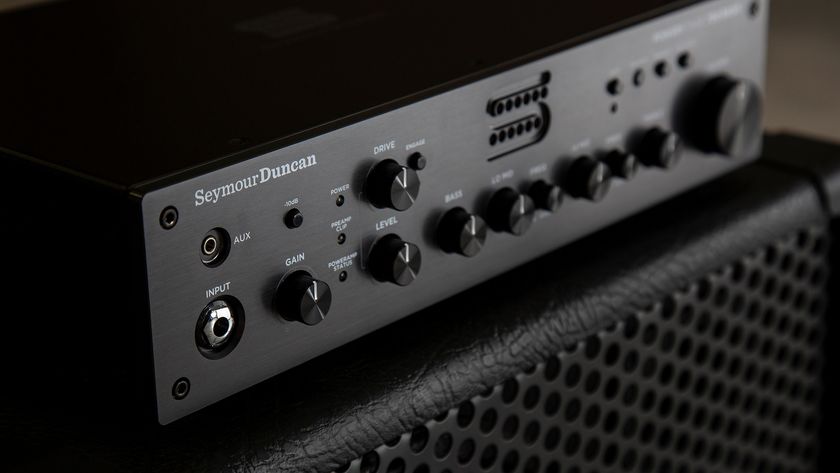Jaguar Jonze: "For me, guitars input imperfections, and that’s what adds to the storytelling"
The Aussie songwriter discusses how the guitar shapes her writing process, her COVID recovery, and the influence of spaghetti westerns on her music
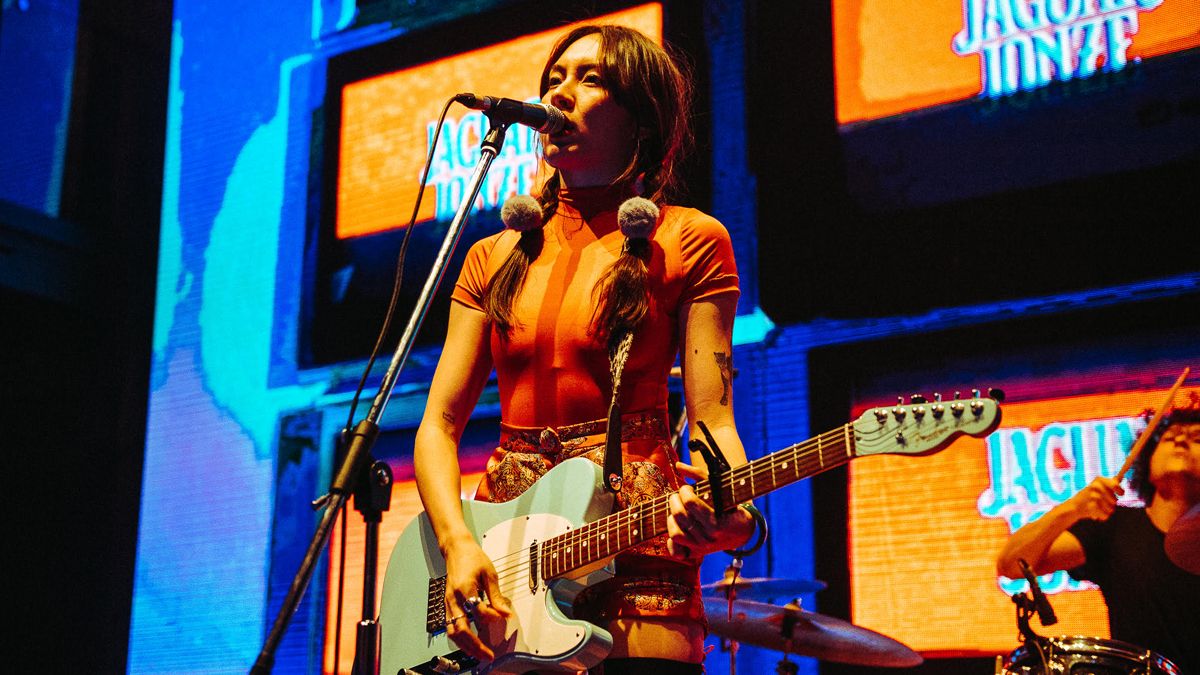
Jaguar Jonze is always hungry. And we’re not talking in metaphors here; food seems to be at the heart of most discussions for the Australian singer and her band.
“The band is amazing, and they all come from quite like technical backgrounds. I'm the opposite. And they have learned to speak my language. And that is, I just describe music as food,” she explains.
“I'll say to Aidan, the bass player, ‘The bass is good, but it needs to be more buttery, you know?’ And he'll be like, ‘Gotcha,’ and whip out the butter! Or, if we're mixing, I'll say, 'We've got the hamburger slices, but we're missing the patty’...”
“...but she’s actually just secretly asking us to order food for her,” guitarist Joe Fallon quips.
It may be a somewhat unorthodox approach, but you can’t argue with the results. Mixing trailing spaghetti-western-style guitar with bass grooves, driving beats, layers of synths, and vocal melodies that hark back to '90s pop, the sound of Jaguar Jonze is familiar, yet distinct.
As far as those involved are concerned though, Jaguar Jonze is an attitude more than anything, and that attitude informs the direction of the sounds.
“I really am trying to build a world here around Jaguar Jonze, and I kind of think it's taken time to figure out what that world is. I don't want it to just be like, just cut from one piece of cloth, you know, music, or arrangement or production ideas. I really want it to be like an exploration of a world,” she says.
Get The Pick Newsletter
All the latest guitar news, interviews, lessons, reviews, deals and more, direct to your inbox!
Jaguar Jonze is Deena Lynch. The project is her brainchild, and she is at the center of the songwriting process, but she is keen to point out the importance of her full-time band.
Rounded out by Fallon, whom Lynch has known since primary school, drummer Jacob Mann and bassist Aidan Hogg, Lynch says the band members are a vital component, and all contribute to the songwriting process.
I am trying to build a world here around Jaguar Jonze. I don't want it to be just cut from one piece of cloth. I want it to be an exploration of a world
Deena Lynch
“It's my project, but it doesn't exist without the band sound and the band members – so it's a weird in between. Yes, Jaguar Jonze is me, but I cannot exist without my family, which is the band.
"And they add so much to the sound that I could never trade. I feel like we all sit on the same page, and understand where the music needs to go or what the sound needs to be. And that's really rare,” she says.
Lynch says the road to this point has been long and arduous. She had spent years working towards a folk-leaning project she describes as being “all over the place”, and it was only when she made a commitment to working on a full body of work that this project came to life. In fact, work on the visual aspect alone started at least two years before any music was released.
What was never questioned was the role guitar would play in the music. For Lynch, a self-described Eastern Cowgirl thanks to her mixed racial background, guitar made a natural bedfellow for the world she was trying to create.
“For me, guitar is like a vocal. When you give me something that's just synth or electronic beats and whatnot...and then you chuck a guitar on it – it's just like another singing voice. Vocals and guitars input imperfections, and that’s what adds character and personality [of the music], and adds to the storytelling,” she says.
And it’s Fallon and Lynch’s shared love of spaghetti western textures that really informs a lot of the sonic terrain covered by the guitars.
For me, guitar is like a vocal. They input imperfections, and that's what adds character and personality, and adds to the storytelling
Deena Lynch
“I think it comes from that imperfection thing as well,” Fallon says. “Where back in those movies – they're recording those guitar parts through like shitty equipment and have this really treble-y like, washed out reverb-y kind of sound that adds so much character.
"I have always played classical guitar as well, and there are a lot of similarities to the lines you play in Spanish guitar and those in spaghetti westerns. So that’s where I think a lot of it comes from," he continues.
To craft that tone, the band are all massive fans of Fender amps and guitars. Both Fallon and Lynch opt for Telecasters in the studio, making good use of a Nash T52 Telecaster & Standard ‘09 Telecaster, often paired with a Vibrolux and Bassman, lending to a bright, yet rich, stereo attack. In the live environment, while Lynch stays true to her Tele, Fallon finds he gets a more comprehensive sound from a ‘62 Jazzmaster.
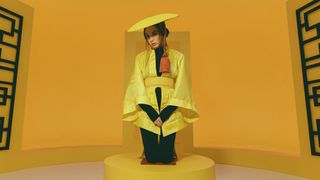
Even when working in restricted recording environments – as was the case when recording new EP Antihero – the band were looking to plugins to help capture that "classic Fender sound" as they found that brightness pairs well with the heavy spring reverb tones they’re working with.
Lynch has her own way of capturing the essence of the Jaguar Jonze guitar sound. “I feel like we have two main guitars that are like our signature in Jaguar Jonze. You've got the lush bed guitar, like rhythm guitar, which is really just like a piece of cake underneath it all.
"And then on top of this sponge cake is the cutthroat lead lines. Really driven and just cuts through... it's just like shards of glass on this sponge cake… [big laughs].”
We have two main guitars that are our signature. You've got the lush bed guitar, and then on top is the cutthroat lead lines, just like shards of glass
Deena Lynch
Fallon and Lynch are clearly both in great spirits tonight. With the imminent release of Antihero and having recently returned to playing gigs in her home town of Brisbane, Australia, it’s almost a world away from where Lynch was this time last year.
After getting stuck in New York just as the pandemic hit, the band flew to Sydney where, upon arrival, Lynch tested positive for COVID-19, and became one of Australia's first documented cases of the disease.
“I was under hospital care for 40 days. It was actually pretty hard – 40 days. You know, it's not only just like your health affected, it's your mental health being affected as well. Your jobs are taken away from you with COVID. And then after that I couldn't get home to Brisbane because of border restrictions and stuff as well,” she says.
Ultimately, it turned into a long-term battle, and Lynch is still dealing with the effects of it, though she tends to focus on the positives.
“I lose my voice quicker and get fatigued easier. But I just kind of bring it into my stride. That's me now. And I think it's also made me realize that I cannot run on exhaustion and adrenaline anymore, regardless of COVID. So it was a good wake up call for that,” she says.
“It's actually made me feel, in a time that's really isolating, it's actually made me feel even more connected. And that's me coming from being under hospital care for like 40 days.
My music is connecting, and that's all I want. I love making music enough because I love connecting people. Getting that acknowledgement drives my further to be better
Deena Lynch
"I went through four quarantines that are like solitary confinement...that's a very disconnecting, period. But I was very, very, very much supported, loved and connected throughout the entire time.
"And I will carry that through with me post COVID. Realizing that like, my music is connecting, and that's all I want. I don't just make music not because I love music and art.
"I love making music enough because I love connecting with people. And getting that acknowledgement drives me further to just be better and keep doing that and learn how to do that more.”
- Jaguar Jonze's new EP, Antihero, is out April 16.
Chris is a contributor to Guitar World and MusicRadar with around 20 years of guitar playing experience – including writing for and recording various projects for around 15 of those. Outside of practical experience, he’s studied music throughout his life, with a particular focus on composition at university. He’s something of a 90s tragic and a sucker for anything with a groovy, metallic edge or psych and stoner vibes. Outside of music, he’s an avid cook, gardener, and rugby league lover.
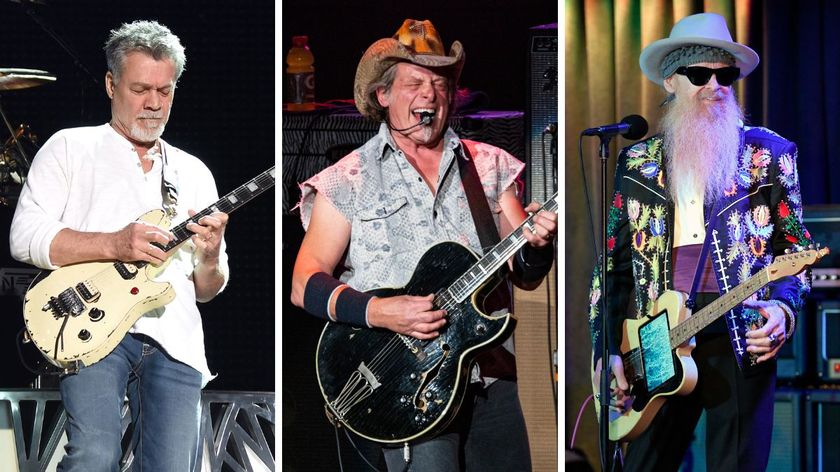
“Who doesn't want to hear the recording of Ted Nugent and Eddie Van Halen jamming?” Ted Nugent's colossal archive includes sessions with EVH, Billy Gibbons and the Mothers of Invention
![Adrian Smith [left] and Richie Kotzen pose with an HSS S-style and Telecaster respectively.](https://cdn.mos.cms.futurecdn.net/DqivbKgc2aXLoykDT3h5mN-840-80.jpg)
“I started on guitar because I wanted to be in a band and meet girls. Richie wanted to be a guitar player, because he wanted to play guitar”: Adrian Smith and Richie Kotzen come from different worlds, but it all comes back to the blues

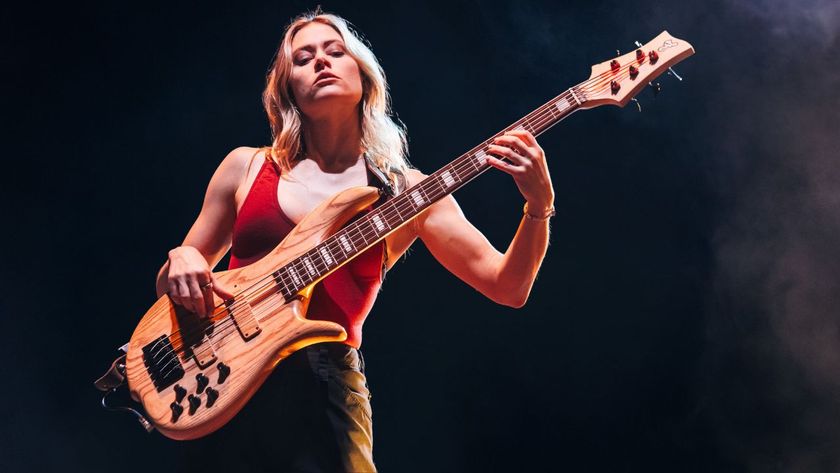
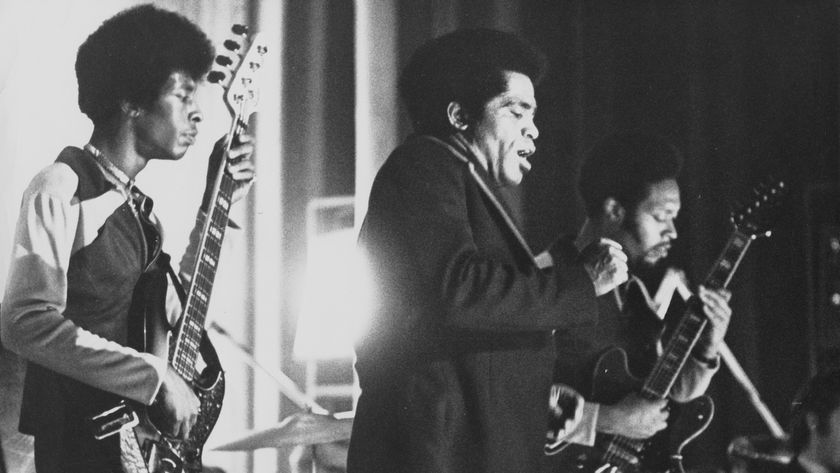
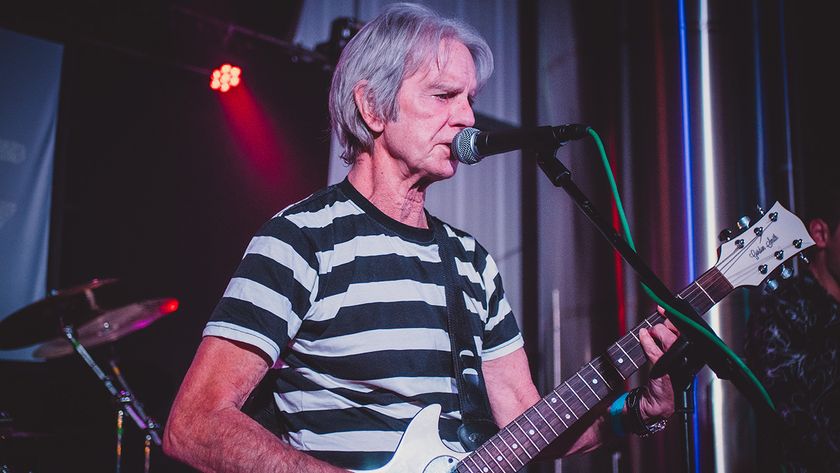
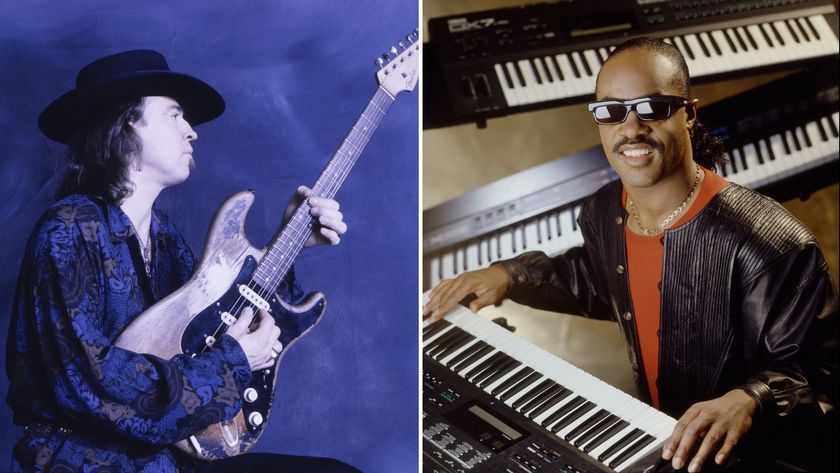
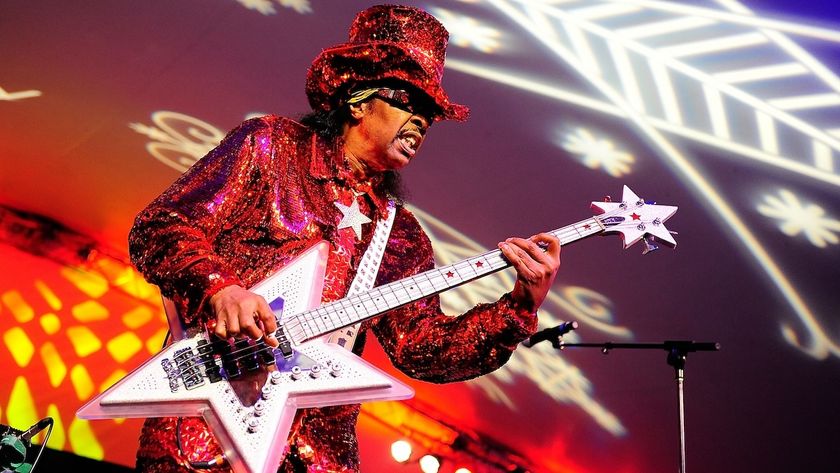
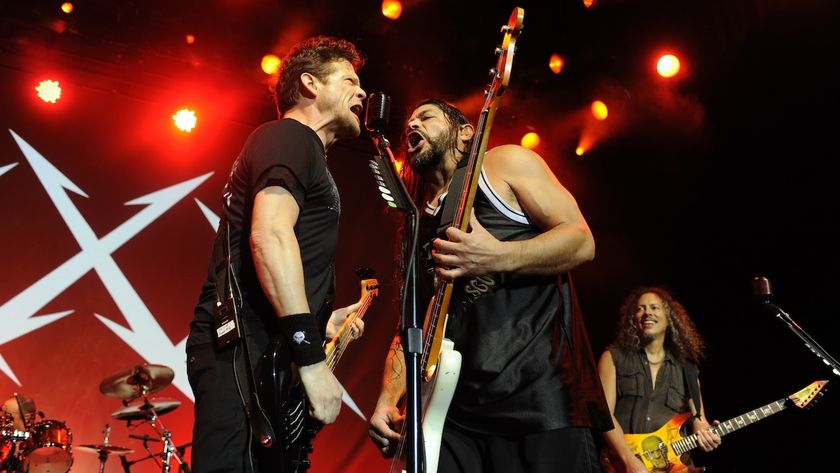
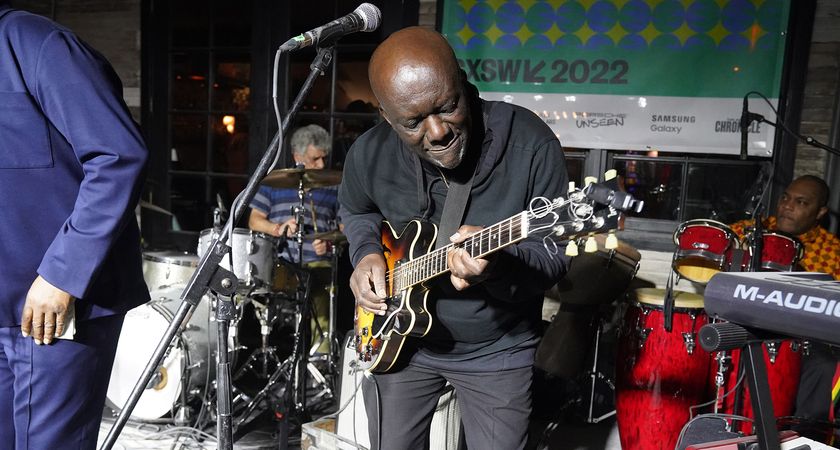
![[L-R] George Harrison, Aashish Khan and John Barham collaborate in the studio](https://cdn.mos.cms.futurecdn.net/VANJajEM56nLiJATg4P5Po-840-80.jpg)
